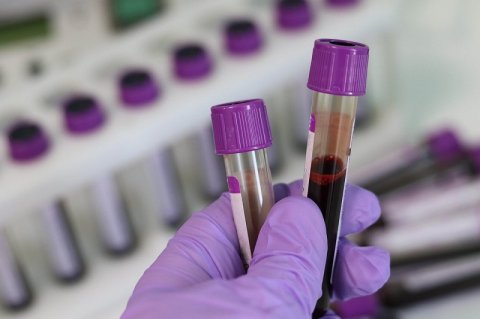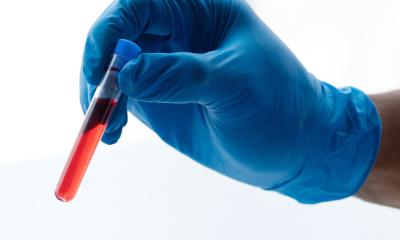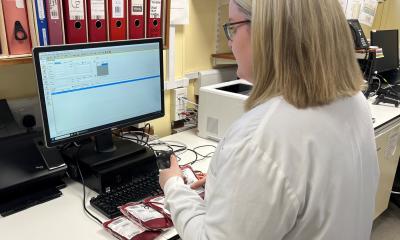News • Acute aortic syndrome
Blood test could detect life-threatening aortic tears
A simple blood test could help doctors spot deadly damage to the aorta, the body’s largest blood vessel, according to research funded by the British Heart Foundation (BHF) presented at the British Cardiovascular Society conference.

Acute aortic syndrome (AAS) occurs when the wall of the aorta tears and blood begins to flow between the layers of the blood vessel wall. Patients with AAS need immediate treatment - in the most severe cases emergency surgery - to prevent the artery from rupturing and the patient potentially dying. However, diagnosing the disease in time is often difficult as symptoms, such as chest pain, can be attributed to other commoner conditions.
Now, researchers at the Universities of Dundee and Edinburgh have found that testing for a molecule called ‘desmosine’ may speed up diagnosis of this deadly disease which affects around 3000 people in the UK every year.
Researchers compared blood concentrations of desmosine in 53 patients known to have AAS and 106 people without the disease. They found that those suffering from AAS had almost double the concentration of desmosine in their blood. Desmosine levels were also associated with aortic growth which occurs when the aorta becomes damaged.
The team believe that desmosine is released into the blood when the tissues within the wall of the aorta break down, signalling that the aorta has been damaged and is at risk of expanding or bursting. They now hope to use these findings to explore whether a simple blood test for desmosine could speed up the diagnosis of AAS in hospital.
Mr Maaz Syed, Clinical Research Fellow at the BHF Department for Cardiovascular Sciences, University of Edinburgh, said: “Right now, acute aortic syndrome is catastrophic. Diagnosis is difficult, and when it comes to treatment every second’s delay can prove fatal. We urgently need a new, faster way to diagnose this catastrophic disease so that we can get patients the swift, life-saving treatment that they need. We need to confirm these results in bigger trials, but we hope that we have a potential biomarker that may help us detect a dangerous disease.”
Professor James Leiper, Associate Medical Director at the British Heart Foundation which funded the research, said: “This research shows that high blood levels of desmosine could act as a molecular warning sign, flagging that the aorta is damaged and that a patient needs immediate treatment.
“If the findings of the current work are replicated in larger studies, this tiny molecule could one day form the basis of a much-needed hospital test to detect AAS, speeding up treatments and ultimately saving lives.”
Dr Anna-Maria Choy, Clinical Senior Lecturer at Dundee’s School of Medicine, said: “Time is absolutely vital when the aorta develops a tear and so anything that enables clinicians to make a rapid diagnosis and begin treatment right away will undoubtedly save lives. Desmosine is almost the holy grail in this regard because until now we do not have reliable blood tests for aortic tears. This is why my colleague Dr Jeffrey Huang sought to develop a simple test that would allow for quick diagnosis. Using his technology, we have been able to work with collaborators in Edinburgh to prove that desmosine is a biomarker of AAS.”
Source: British Heart Foundation
10.06.2021











